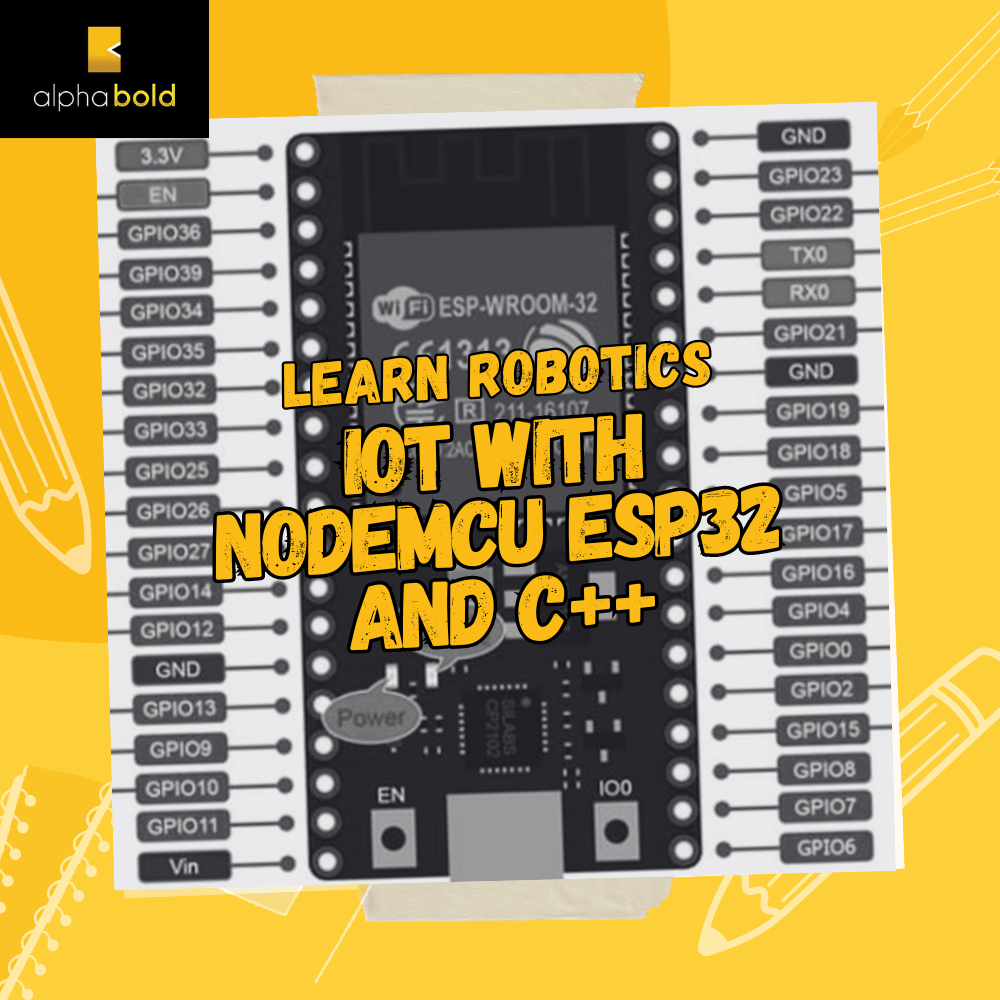Overview
This course unit introduces the fundamental concepts of the Internet of Things (IoT) and equips you with the skills to develop and deploy your own IoT applications using the NodeMCU ESP32 development board and C++ programming language. Through a combination of lectures, hands-on labs, and projects, you will gain a comprehensive understanding of IoT architecture, data management, security considerations, and practical implementation techniques.
Aims
- Provide a foundational understanding of the Internet of Things (IoT) and its core principles.
- Explore various aspects of IoT system design, data storage, and analytics.
- Equip students with the ability to program the NodeMCU ESP32 using C++ for IoT applications.
- Develop practical skills in connecting ESP32 devices to cloud platforms and data visualization tools.
Learning Outcomes
By the end of this course unit, you will be able to:
- Define the Internet of Things (IoT) and its applications across different domains.
- Explain the key components and architecture of an IoT system.
- Discuss data storage and analytics strategies for IoT data.
- Identify and address security and privacy concerns in the context of IoT.
- Set up and program the NodeMCU ESP32 development board using C++.
- Interface sensors with the ESP32 to collect analog and digital data.
- Configure the ESP32 for Wi-Fi communication and develop web server applications.
- Connect the ESP32 to cloud platforms like Arduino IoT Cloud and Blynk.
- Utilize Blynk for data storage, visualization, and remote control of IoT devices.
- Integrate the ESP32 with Firebase Realtime Database for data storage and retrieval.
- Develop basic data analytics and visualization techniques for IoT data collected by ESP32.
